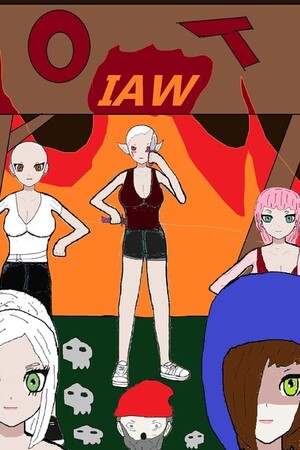Chapter 3:
Chapter 3
Soldiers of Heart and Steel
They were standing at attention, shoulder to shoulder, in Admiral Boise’s office. Myan Lami, his back straight, with his legs spread apart and his hands crossed behind his back, met the hard gaze of the Sunguard admiral sitting behind his desk. To Lami’s left, Rehema Nyasi stood in the same pose, looking directly at Boise’s face with steel in her eyes.
The two Special Agents, in their plain gray and red jumpsuits with no decorations, contrasted sharply with the admiral’s uniform, which was covered in badges, service ribbons, and rank insignia.
“Congratulations,” Admiral Boise said, “to a job well done, Special Agent Lami. I understand this was your first mission since you were taken online. Your design came with glowing recommendations from General Dumas, and I’m glad to see his faith in it was not misplaced.”
“Yes, sir. Thank you, sir,” Lami replied quickly and almost mechanically.
“Your adherence to duty and your quick thinking saved a lot of lives today—and you helped us deal a severe blow to the so-called Liberation Front.”
Only the quickest flicker of his eyes betrayed Lami’s feeling of being trapped between Admiral Boise’s admiring words and Special Agent Nyasi’s condemnation of him. Though the man’s body language was obvious to her, Rehema doubted the admiral picked up on it.
Lami cleared his throat.
“If I may say so, sir,” he began, careful with how he expressed himself, “I am afraid there were some civilian casualties.”
Admiral Boise picked up a pen from his desk and studied it for a couple of seconds before putting it down again.
“That is all right, Special Agent,” he said, lifting his eyes to meet Lami’s again. “There were only native casualties. Nothing you need to concern yourself with.”
Now it was Nyasi’s time to speak up.
“I strongly disagree with that assessment, Admiral. The Jerrassians are citizens of the Terran Federation. It was our duty to protect them. Special Agent Lami’s actions went against the purpose of our mission.”
“Yes, ma’am,” Boise said, immediately dropping his act of being in command. Though he had enough charisma to make the newly activated Lami behave as if the admiral was the Special Agent’s superior, keeping up that act with Special Agent Nyasi would have gotten him nowhere.
“But it does align with the policies established by the Solar Council,” he continued.
He wasn’t entirely wrong about that, Nyasi thought. In the face of the looming Nova Solaris, for the past three centuries, Terran needs had been prioritized by the government of the Federation. But that was a policy established to expedite resource management within the Terran Federation during the evacuation. Nowhere did it state the Solar Council now condoned the killing of innocent non-Terran citizens.
Though by now, it was becoming increasingly clear that was exactly how some branches of the Sunguard were starting to view current government policy.
“That is your interpretation,” she replied to the admiral, icy steel in her voice. “Not mine.”
Boise swore. “I’m not going to let good soldiers die to save the pandas,” he said, attempting to justify his point of view.
That did it for Nyasi. She hadn’t called this meeting just to give him a forum for his bigotry.
“Admiral Boise,” she said, the ice in her voice now replaced with righteous fury, “you will not use racial slurs on my world. Not in my presence, and not outside my presence. Is that understood?”
Admiral Boise flew up from his chair and snapped to attention.
“Yes, ma’am! Understood, ma’am!”
“If I hear you use that word again, you will forfeit your pay. Is that clear, Admiral?”
“Yes, ma’am! Very clear, ma’am!”
And without another word, Special Agent Nyasi turned around and left Boise’s office, dismissing the admiral. Special Agent Lami followed in her footsteps.
* * *
Later that night, Special Agent Nyasi sat alone in her office on the second floor. During the day, the Sunguard headquarters at Reagan Base used to buzz with activity. Now, the corridors were dark and quiet. The air, in the absence of the ventilation that only ran during the day, smelled stale.
Being a biot, Nyasi didn’t sleep. She could, of course, if she wanted to—or at least emulate something similar to sleep by shutting down the conscious parts of her brain until a specific time approached or an outside stimulus matched whatever parameter she had chosen to set up as a trigger for waking up. But that was for undercover work, or when she truly didn’t have anything important to do with her time.
She could hardly recall the last time she wasn’t drowning in work. Well, technically, she could remember, of course—but as the saying went, it felt like a lifetime ago. On Jerr, night or day, there was never time to rest.
And so, thinking she was alone in the building in the middle of the night, she was surprised when she heard an unexpected sound coming from the restroom down the hallway—the belching sound of someone throwing up in there.
Nyasi rose from her desk and walked out into the dark, empty corridor. The door to the restroom stood slightly ajar, and in the light shining out through the crack, she could see Special Agent Lami in there, sitting on the floor with his head in the water closet, looking unusually pale.
“Are you all right?” she asked. “Do you need anything?”
Lami looked up at the other Special Agent, clearly embarrassed.
“I think I’m sick, ma’am,” he said.
That was not possible, Nyasi thought. But she understood why he might think so. The biotic brain wasn’t just designed to mimic its biological counterpart—its design was literally copied from the genes that regulated the growth of the brain in a biological human. Designing a brain—with its hundred billion neurons and hundred trillion connections—from scratch had simply not been possible to do when the first biot was created. Instead, the genetic code from which humans grew their brains had been mapped and autotranslated to biotic code. Once translated, the biotic genes had been easy to augment with additional functions like the communications, math, and physics cortices all Special Agents had—but the other ninety-nine percent of their brains remained identical to their biological templates. And that meant the young brain of the biot in front of her might really be telling itself it was sick, just as if it had been biological—even though it obviously wasn’t. In time, he would learn.
Nyasi wanted to dismiss the other Special Agent by telling him to grow up, but stopped herself at the last moment. In many ways, he was just a child. The truth was, when she thought about it, he was really just as much a victim as the Jerrassians he had killed had been.
For the rest of his life—which, with him being a biot, she expected would last for thousands of years—his conscience would torment him with the crystal-clear memories of the sights, sounds, and smells of the atrocities he had been ordered to commit, recalled to the end of time with the perfect accuracy only a biotic brain could provide.
Special Agent Nyasi did not envy her young colleague.
“I see her face whenever I close my eyes,” Lami said, pain evident in his voice. “The little girl’s.”
Sadness filled Nyasi, like a lump had lodged itself in her throat. Sadness for the loss of life and innocence. She wanted to tell Lami he’d get over it, but knew that would be a lie. The image of the girl he had killed—and of all his other civilian victims—would forever haunt the man.
“It’s not your fault,” she said softly.
“I know, ma’am,” Lami replied. He did understand, intellectually at least. Emotionally, well, that was another matter entirely. “But how does that matter? They are still dead, and I still killed them.”
“I cannot lift a weapon again,” he continued with a whimper. “I tried. My hands just shook uncontrollably when I held it. There is something wrong with me, I know it. I just cannot do this anymore. What kind of Special Agent am I if I cannot even hold a gun? They did something wrong when they designed my genes.”
Tears streamed down Special Agent Lami’s cheeks.
“I need to be taken offline,” he finally said, after a minute of silent crying. “The Sunguard needs to run a diagnostic on the NL iteration and issue corrective updates. I know they removed telepathy from the NLs—maybe that had unintentional consequences and adversely affected something else as well.”
The way he said it made Nyasi feel the horror of his predicament like a punch to her gut.
But what could she say to ease his pain? He felt whatever he felt, and despite her reassurances the situation wasn’t his fault, the fact remained that it was still Lami who ultimately had made the decision to follow the order he had been given to open fire on the civilians.
“I don’t think we need to go that far,” she said. “It’s highly unlikely there’s a bug in your code. The Sunguard has been making biots for more than five hundred years. There’s almost two hundred of us now—and none has ever bugged out,” she continued, trying to appeal to his logical mind.
Lami just looked at her in silence, then turned his head and threw up again.
Author's Note
The story you're reading is one of many set in the Lords of the Stars universe I've been creating over the past 30 years, where familiar characters and places reappear, and new favorites await discovery. Check out my profile to explore more stories from this universe.
While Soldiers of Heart and Steel is entirely standalone, I think you’ll particularly enjoy Twilight Duty, which serves as something of a prequel to this story, and Choices of Steel, which is a sequel.
Visit the official Lords of the Stars blog for more information about this hard sci-fi universe: https://lordsofthestars.wordpress.com
If you enjoyed this chapter, please consider giving it a like.




Please sign in to leave a comment.